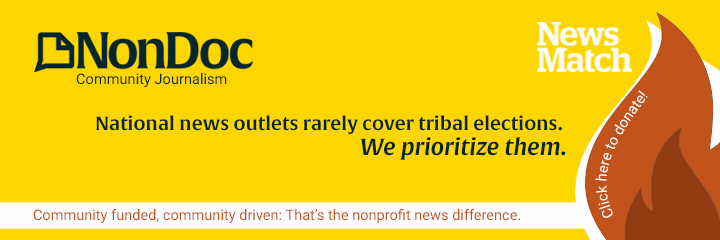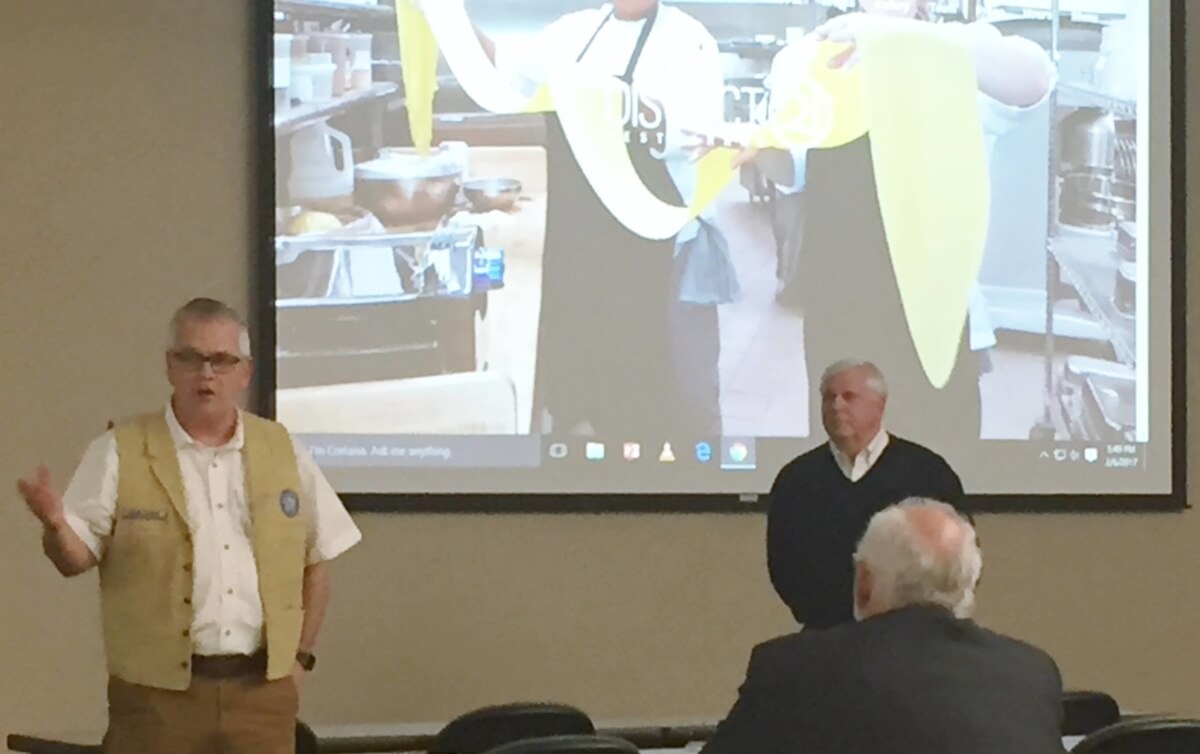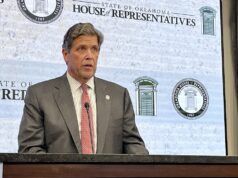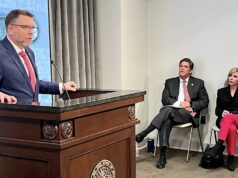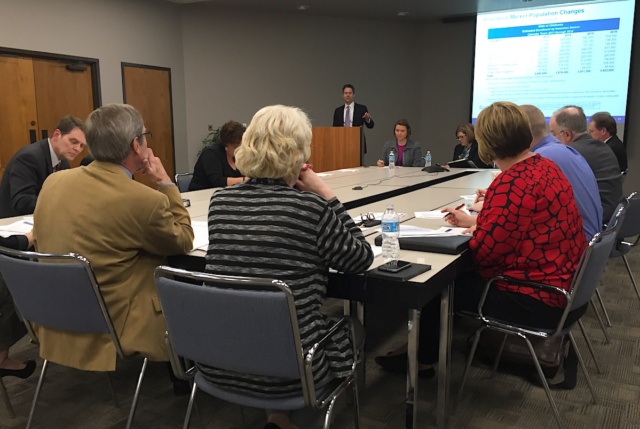

While the exact future of the Affordable Care Act remains in doubt, bureaucrats in even the nation’s most conservative states are pushing forward policy initiatives under the health law of the land.
During her statements at an Associated Press forum before the 2017 legislative session started, Gov. Mary Fallin said Oklahoma will be submitting what is called a 1332 waiver to the Centers for Medicare and Medicaid Services.
Such a waiver is used for a state to seek freedom from specific regulations within the Affordable Care Act, but exactly what Oklahoma will ask for remains unclear. The 1332 waiver had been built into the ACA in a way that made 2017 the first year states could submit them. So far, only Alaska, California, Hawaii and Vermont have finalized requests, and each of those states is seeking different leniencies. As if to underscore the complexity of the waiver process, only Alaska had its waiver application declared “complete” upon initial filing.
‘A ton of problems’
Fallin said Oklahoma’s submission could come as early as May, and a “concept plan” created by a 21-member task force had been placed online as part of a public comment period. But Buffy Heater, the state’s project leader on the effort, said July is a more likely date for submission.
Broadly, the effort seeks federal leniency on rules within the ACA that affect the health insurance marketplace from which many Oklahomans purchase their individual plans.
While all such state requests are different, one goal of Oklahoma’s waiver request will be to increase the number of people actually purchasing plans on the marketplace, said Heater.
“There are only 27 percent of the qualified Oklahomans that are actually participating in and purchasing coverage through the federally facilitated marketplace right now,” Heater said. “There were a ton of problems identified in the marketplace.”
She said the task force has filtered those problems into five main areas: low enrollment, high cost, low competition, plan design and limited state control over what constitutes a qualified health plan (QHP). One basic idea receiving consideration from the task force is a request to eliminate or modify the bronze, silver and gold “metal tiers” by which health plans are labeled online.
“Really what we’re talking about doing in that recommendation is simplifying the insurance market,” Heater said. “Health insurance is very complex for people who don’t work in it every day. It should be easy to understand. It should be upfront about costs.”
Such costs will also be a major focus of Oklahoma’s 1332 waiver requests, which Heater said could be submitted one at a time to address individual regulations.
“We feel there are some key things in those regulations today that have really resulted in premium costs being higher than what the market can support,” Heater said, pointing to the act’s controversial age-rating limitation. “The ACA prescribed that premiums for an older person couldn’t be more than three times expensive than a younger person.”
Prior to the ACA, Heater said premiums could be up to five times higher for older policyholders. While the new ratio was intended to hold the higher premiums down, she said the result has been more expensive premiums on younger Americans.
“If we had more flexibility to create a wider ratio, it would allow plans to offer a lower premium expense to folks on the younger end of the spectrum to encourage them to enroll,” Heater said. “That’s the whole point of insurance: To have costs borne by many.”
‘A process, not an event’
Many Oklahomans are anxious to see what changes President Donald Trump and GOP congressional leaders have in mind for the Affordable Care Act now that former President Barrack Obama is not around to veto them.
RELATED
Citizens voice ACA concerns at insurance town hall by Jeff Packham
But cries to “repeal and replace” the entire law have so far made better sound bites than actual proposals, and former Republican Speaker of the House John Boehner said last week that he does not believe repeal and replace will happen.
“They’re basically going to fix the flaws and put a more conservative box around it,” Boehner said to Politico.
Oklahoma’s Fourth District Congressman Tom Cole (R-Moore) explained it a little differently last week at the Oklahoma State Capitol.
“You should think of ACA repeal as a process, not an event,” Cole said. “There’s not going to be one, single 2,000-page bill. There’s going to be multiple pieces of legislation. Everything from sale of insurance across state boundaries to probably some sort of medical insurance liability reform, associated health care plans, but also high-risk pools at the state level to help make sure people with pre-existing conditions really can get [coverage].
“(House Speaker Paul) Ryan will roll out a sort of draft version in the next couple of weeks.”
Cole noted that some of the flexibility being eyed by the 1332 waiver task force may attempt to address the same problems that congressional Republicans see with the law.
“In Oklahoma, we’re down to a single provider, and rates are going up 69 percent. So what we have isn’t working here for sure,” Cole said. “I think the sticky issues are what do you do between Medicaid expansion and non-Medicaid expansion states, which Oklahoma is one. And you’re going to have to finance whatever you do. Do you do that with a new tax and scrap all the old Obamacare taxes? Or do you keep what you need of those to do it?”
Heater said her 1332 waiver task force has sought guidance and input from Oklahoma’s congressional delegation, and she said they at least hope the issues and ideas they have identified can be considered among any major ACA reforms.
“It is a challenge, and I think ‘challenge’ should be underlined,” Heater said. “It is a changing environment. There are a lot of uncertainties. We’ve even heard that from task force members.
“The rules of the game have not been laid out for us, so I think our stance is we would like to present our ideas from Oklahoma’s standpoint.”
Rep. Glen Mulready (R-Jenks) had that in mind when he authored the 2016 legislation that allowed Oklahoma to seek a 1332 waiver.
“I’ve always been a big proponent of state solutions versus federal, one-size-fits-all solutions,” Mulready said. “When it comes to health care or health insurance, the answers are just very different for a Massachusetts versus an Oklahoma. For example, Massachusetts has the highest per-capita rate of physicians in the country. Oklahoma? We’ve moved up a couple spots, but we’re basically last.”
Mulready grew up in Massachusetts and lived there for 35 years before moving to Oklahoma. He told a story from his childhood as an analogy for how competition and choices have been limited in health care.
“I think that was another downside of the ACA — the restriction of choices,” he said. “I’m one of seven kids, and once in a great while we’d go get an ice cream. So with seven kids in tow and all these ice cream choices, my dad would say, ‘Brown, white or pink?’ But I want rocky road! He’d say, ‘No, brown, white or pink.’ And that’s sort of what happened with the ACA. We rolled this ACA out like, no, you’ve got to fit in this box. And it limited choices, which I think keeps people out of the marketplace.”
Heater said her task force will seek legislative review of its waiver prior to submission.
‘What is the value’
Neither Heater, Cole nor Mulready expressed interest in scrapping the entire ACA, and Heater mentioned $0 co-pays and the ability for parents to keep kids on plans up to age 26 as components her task force likes.
But she also discussed the rising prevalence of high-deductible plans as an issue affecting Oklahomans. (A deductible is the amount of money a policyholder must pay first before the insurer begins paying for many services.)
“That has been the recognition at the task force,” Heater said. “The deductibles and what you see in the marketplace today are really quite concerning.”
Heater said the group has reviewed data showing individual deductibles ranging between $1,125 and $19,200. She said family deductibles have gone as high as $41,357.
“There is concern with those deductibles increasing,” she said. “There’s question about what is the value.”
Asked how the public or a state could convince insurance companies to lower their deductibles, Heater hesitated.
“That’s a good question, right?” she said. “I’m not an insurance company, so I can’t answer that directly. But I can say that for Oklahoma taking a more active role in plan qualification and taking a more active role in looking at the details a plan wants to produce, perhaps that gives us more (opportunity) to meet in the middle.”
Cole said Oklahoma needs more plans and more carriers in its marketplace, but he noted that big changes may take a little while.
“The plans for next year are being written now. And the plans that we’re under now aren’t going to be changed during this year,” Cole said. “So my guess is, if you’re on Obamacare with a subsidy, you’ll probably have that for the next few years. Then these things get phased out and replaced with other things.
“But, again, you’re in a collapsing market now. Rates are going up, and insurance companies are fleeing. That’s got to be reversed, or it will collapse under its own weight.”
Oklahoma’s 1332 innovation waiver task force was expected to upload its full concept paper by the end of business Tuesday. Heater said the document will be available here when ready.
The task force is scheduled to meet next on April 18 at the Oklahoma Hospital Association.

